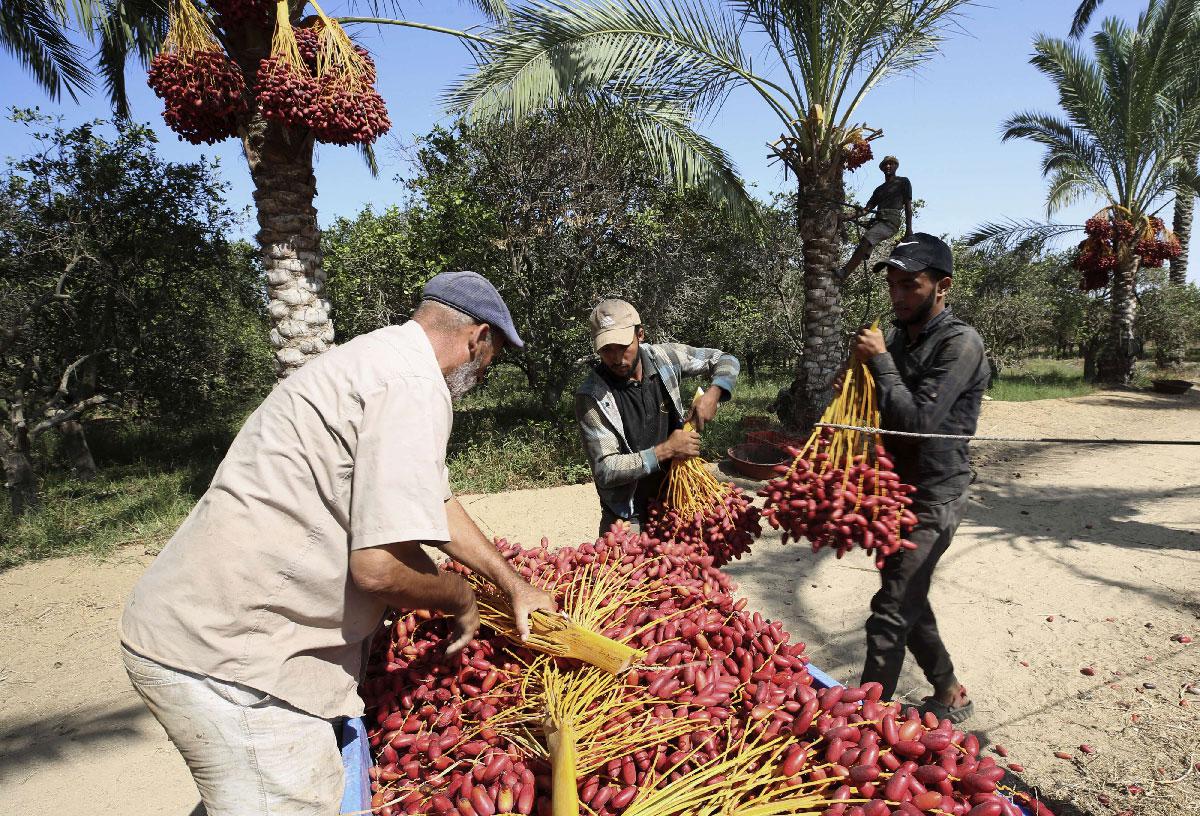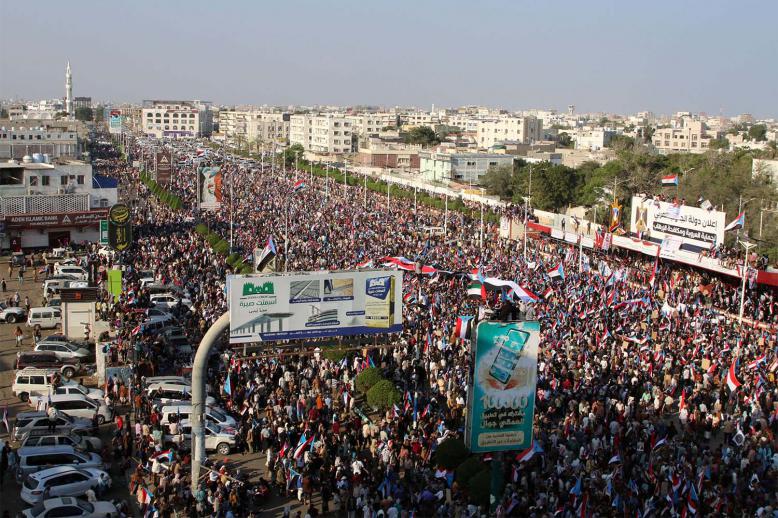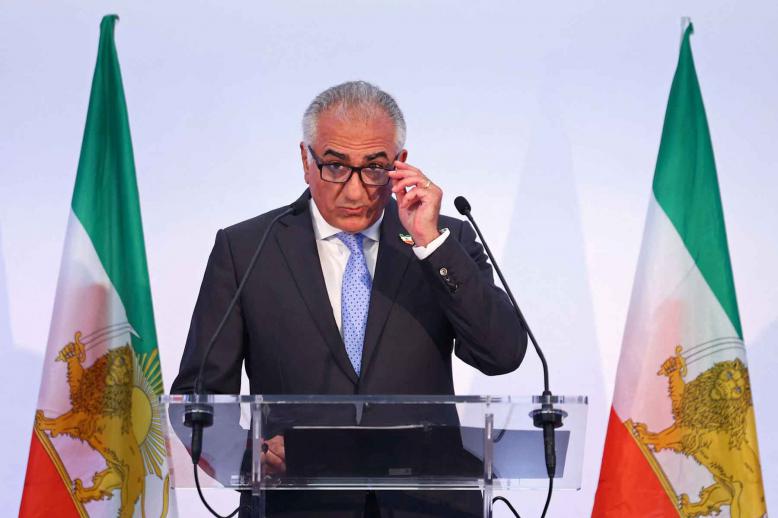Israel halts ban on Palestinian exports after trade crisis
TEL AVIV - Israel's Defence Minister said Thursday that the country would allow Palestinian agricultural exports, seemingly putting an end to an escalating trade crisis that had heightened Israeli-Palestinian tensions.
Israeli Defence Minister Naftali Bennett said in a statement that Israel would allow the agricultural exports after the Palestinians began accepting Israeli beef.
The Palestinian agriculture ministry announced the immediate import of "livestock, including calves" as well as "all products and commercial goods from all countries of the world without obstacles".
"This came after a series of direct and indirect discussions through international parties, which resulted in Israel retracting its illegal measures," the ministry said in a statement late Wednesday.
The ratcheting down of the trade crisis comes as tensions between Israel and the Palestinians are high following the unveiling last month of President Donald Trump's Mideast initiative, which is hugely favorable to Israel. The Palestinians have rejected the plan outright.
The trade crisis erupted in September, when the Palestinians decided to stop importing beef from Israel. Officials said the move was aimed at reducing the Palestinians’ economic dependence on Israel.
The Palestinian Authority (PA) claimed most of the 120,000 head of cattle imported monthly from Israel was itself imported and that they therefore preferred to import directly from abroad.
Israel is not a calf-producing country, but its farmers import calves that are then resold to Palestinians for a profit. The value of the cattle sold to the Palestinian market is around $200 million annually; Israel provides roughly 90% of the Palestinians' beef supply.
A large part of the trade consists of calves fattened by Israeli ranchers, with the meat then sold to Palestinian butchers. Shortly after the September announcement, Israeli cattle ranchers saw a drop in their market and pressured Israeli authorities to take action.
At one point, Israeli ranchers mounted a protest by grazing their animals outside the home of the Israeli Defence Minister, who has authority over the border crossings with Palestinian territories. Israel is currently readying for its third election within a year, and critics have accused the far-right Bennett of exploiting the trade crisis for his own political gain.
Bennett responded to the Palestinian moves by instructing the Israeli army's coordinator for the occupied Palestinian territories to enforce a ban on the sale of Palestinian beef and other products to Israeli markets. Israel then escalated the dispute further by banning Palestinian agricultural exports into Jordan, from where Palestinian produce is sold on to regional and European markets.
"They’re causing an entire industry and hundreds of ranches to collapse," Bennett said in a statement after ordering the embargo. "A boycott will be answered with a boycott."
The moves triggered the PA to expand its own boycott and stop importing Israeli vegetables, fruits, beverages and mineral water.
Trade and occupation
The Palestinians said their actions were aimed at pressuring Israel into revoking its ban, while Israel said normal trade would be restored the moment the Palestinians reverse the cattle ban that sparked the crisis.
The decision to ban the import of calves from Israel was made in September by Palestinian Prime Minister Mohammed Shtayyeh, as part of his plan to achieve “gradual economic disengagement” from Israel. Palestinian officials say that due to Israel's military occupation of Palestinian land, their economy is essentially a captive market for Israel to exploit as it wishes.
Trade ties have been one of the few stable links between Israelis and Palestinians, as goods have continued their steady flow through Israeli military checkpoints through decades of inter-communal violence and dead-end negotiations.
But Shtayyeh has looked to enforce a policy of gradual disengagement with Israel, believing that Palestine is too dependent on Tel Aviv despite the lack of prospects for a peace settlement to the long-running Middle East conflict.
Palestinian officials have repeatedly threatened to cut ties with the occupying power, Israel, including President Mahmoud Abbas who on multiple occasions has said he would end all security and economic arrangements made between the two parties under the Oslo Accords signed in the early 1990s.
Under the 1994 Paris Protocol, which was incorporated into the Oslo II Accord, the Palestinian economy was integrated into the Israeli one via a customs union. Israel has full control over its own borders as well as those of the PA, leaving Palestinians with no independent gateway to the world economy. With the lack of a peace agreement between the two sides, the arrangement set out in the Paris Protocol has persisted despite the intention that it would last for an interim period of only 5 years.
The function of Abbas' Palestinian Authority is now entwined with the Israeli occupation to such a degree that any separation is difficult in practical terms. The recent trade dispute was an example of this skewed dynamic, as the nature of the economic relationship between the two parties means that the brunt of the trade barriers that the two sides had put up was borne by Palestinian farmers.
The United Nations Conference on Trade and Development (UNCTAD) noted that in recent years, the Israeli economy absorbed 85% of Palestinian exports, while over 70% of Palestinian imports were from Israel. Meanwhile, the occupied Palestinian territory accounts for only 3% of total Israeli trade.
Data from the Palestinian Ministry of Agriculture shows that sales to Israel, which topped $88 million in 2019, account for 68% of the West Bank’s produce exports. In the Jordan Valley, one of the areas in the West Bank where agriculture is a main source of livelihood for locals, the price of vegetables dropped as the Palestinian market was flooded with the produce that could not be sold either to Israel or on to Jordan.
Analysts had warned that if the trade barriers were not lifted by March, Palestinian farmers would miss their chance to ship dates, the largest export crop, before the Muslim holy month of Ramadan, which would have caused a loss of profit for the whole growing season.
In addition to the hefty trade imbalance, Israel has been accused of exploiting Palestinian economic dependence in other ways, such as illegally retaining Palestinian import and sales tax funds that it collects in order to put political pressure on the Palestinian government. The Paris Protocol gave Israel full control over the collection of Palestinian import taxes and VAT.
Israel has also been accused of exploiting the restricted movement of Palestinian labourers, exacerbating their reliance on Israeli companies and deepening Israel's de facto annexation of occupied Palestinian territory.






